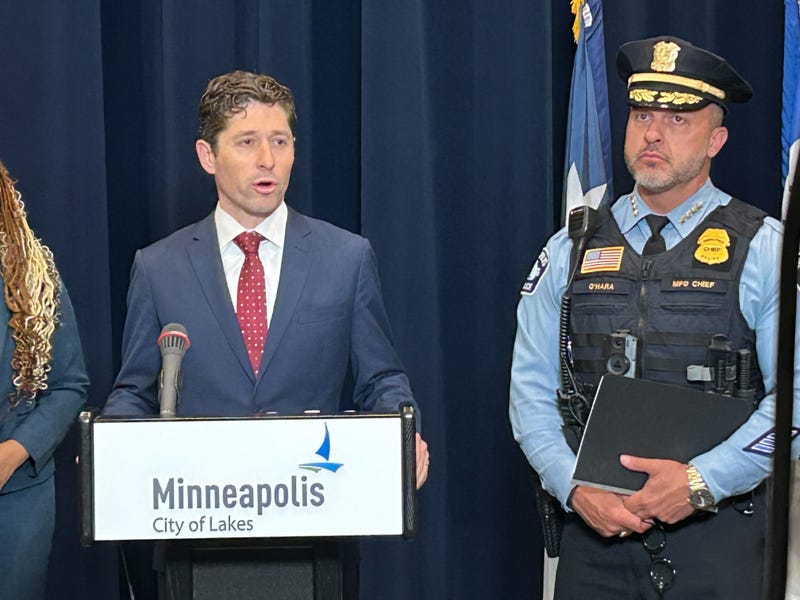
The state's court agreement with Minneapolis Police will stay in place despite the Department of Justice's decision to end it's federal oversight.
The deal with the Minnesota Department of Human Rights is still active and in full effect and will require the city and the police department to make ongoing policy changes to stop race-based policing.
Rebecca Lucero, Commissioner with the Minnesota Department of Human Rights says while city leaders are off to a decent start there is still a lot of work to do.
"You know, I don't think there has been any significant accomplishments at this point," says Lucero. "There have been some key foundational pieces that they are building on, but they are very, very, very early in the process."
This agreement only ends when the court decides that Minneapolis has fully met its terms.
Minneapolis Police Chief Brian O'Hara noted earlier this week that it can take time for police to adjust to changes, but he's confident they're moving in the right direction.
"Members of the community that are a part of this work with us, that goes on regardless, and they are committed to moving forward with us together because it is ultimately to the benefit of our residents to do that," O'Hara says.
The Justice Department moved Wednesday to cancel settlements with Minneapolis and also Louisville that called for an overhaul of their police departments following the killings of George Floyd and Breonna Taylor that became the catalyst for nationwide racial injustice protests in the summer of 2020.
“It’s our view at the Department of Justice Civil Rights Division under the Trump administration that federal micromanagement of local police should be a rare exception, and not the norm,” Assistant Attorney General Harmeet Dhillon, the new leader of the division, told reporters.
The Justice Department announced its decision just before the five-year anniversary of the murder of George Floyd, something Minneapolis Mayor Jacob Frey said he didn't believe was a coincidence.
Then-officer Derek Chauvin used his knee on May 25, 2020, to pin the Black man to the pavement for 9 1/2 minutes in a case that sparked protests around the world and a national reckoning with racism and police brutality.
The Associated Press contributed to this story.
